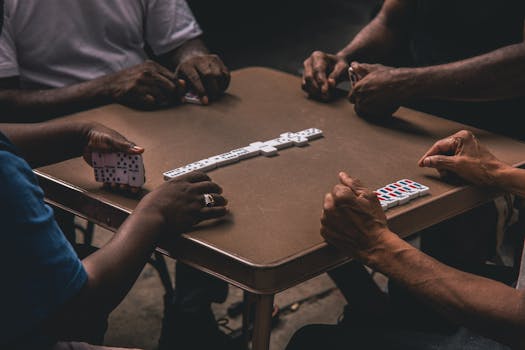What is social interaction skills?

What is social interaction skills?
Social interaction skills are essential for navigating our daily lives. Whether in personal relationships or professional settings, the way we engage with others significantly impacts our success. But what do these skills entail, and why are they so vital? Let’s explore this topic in depth.
Defining Social Interaction Skills
Social interaction skills refer to the abilities we use to communicate and interact with others. They encompass a wide range of behaviors and processes that allow us to connect with people effectively. From how we express our thoughts to how we interpret others’ emotions, these skills play a crucial role in shaping our relationships.
Key Components of Social Interaction Skills
Understanding social interaction skills involves recognizing their essential elements:
-
Communication: This includes both verbal and non-verbal communication. It’s not just what you say, but how you say it—tone, body language, and facial expressions all play a part. For instance, effective communication helps convey your message clearly and builds rapport with others.
-
Empathy: The ability to understand and share the feelings of another person is fundamental to meaningful interactions. Empathy helps us connect on a deeper level and fosters trust and understanding.
-
Listening: Good listening skills are crucial. This means paying attention to what others are saying, not just waiting for your turn to speak. Active listening encourages open dialogue and shows others that you value their input.
Types of Social Interaction Skills
Social interaction skills can be categorized into two main types:
-
Verbal Communication: This involves spoken or written words. It’s about clarity, tone, and articulation. The way we phrase our questions, express opinions, or share stories can greatly influence how others respond.
-
Non-verbal Communication: Body language, gestures, and facial expressions fall under this category. For instance, maintaining eye contact can signal interest and confidence, while crossed arms might suggest defensiveness. Understanding non-verbal cues can enhance your ability to connect with others.
Importance of Social Interaction Skills
Developing social interaction skills is crucial for various reasons.
Impact on Personal Relationships
Strong social skills enhance our relationships with family and friends. They allow us to resolve conflicts more effectively, maintain harmony, and create a supportive environment. For more insights into how social interaction shapes our connections, check out this article on the importance of social interaction.
Influence on Professional Life
In the workplace, good social interaction skills can lead to better teamwork, improved morale, and career advancement. Employers often look for individuals who can collaborate and communicate well with others. Effective interpersonal skills help us network, negotiate, and lead, making them invaluable in professional settings. For a deeper dive into the benefits of social interaction in the workplace, consider reading this piece on the health benefits of social interaction.
Ways to Improve Social Interaction Skills
Improving your social interaction skills is a worthwhile endeavor. Here are some actionable strategies:
Practicing Active Listening
Active listening involves fully concentrating, understanding, and responding to what someone is saying. Techniques to enhance this skill include:
- Reflecting: Paraphrase what the speaker has said to confirm your understanding.
- Asking questions: Encourage further discussion by asking open-ended questions.
- Avoiding distractions: Put away your phone and focus on the conversation at hand.
Engaging in Social Situations
Practice makes perfect. Engage in social situations to enhance your skills. Here are some methods to consider:
- Join clubs or groups: Finding a common interest is an excellent way to meet new people and practice social skills.
- Volunteer: Helping others can foster connections and improve your communication abilities.
- Attend workshops: Look for local events that focus on personal development and social skills.
Challenges in Developing Social Interaction Skills
While improving social interaction skills is beneficial, there can be challenges along the way.
Overcoming Social Anxiety
For many, social anxiety can be a significant barrier. Here are some strategies to manage anxiety:
- Practice relaxation techniques: Breathing exercises or mindfulness can help calm nerves before social interactions.
- Gradual exposure: Start with small social situations and gradually increase your exposure to larger gatherings.
Navigating Miscommunications
Miscommunication is common in social interactions. Here’s how to handle it effectively:
- Stay calm: If a misunderstanding occurs, take a breath before responding.
- Clarify: Ask for clarification and repeat back what you understood to ensure accuracy.
Conclusion
In summary, social interaction skills are vital for building and maintaining relationships, both personally and professionally. They involve communication, empathy, and listening—skills that can always be improved. By actively working on your social skills and practicing in various situations, you can enhance your interactions and foster deeper connections. Embrace the journey of improvement, as the benefits of strong social interaction skills are well worth the effort!